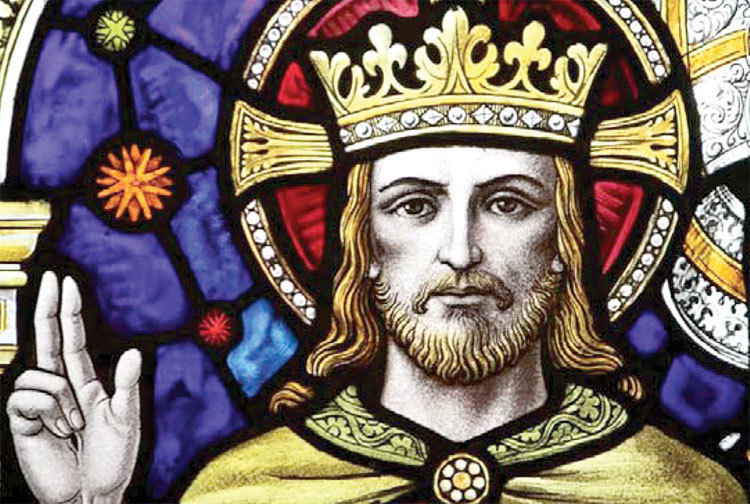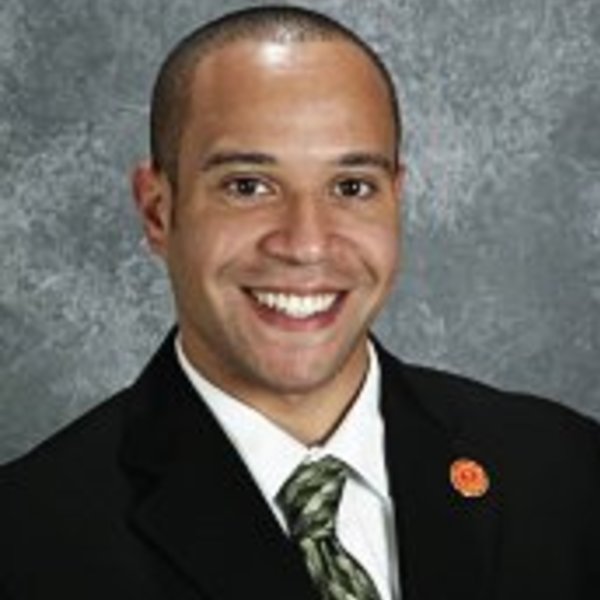As a teacher at Bishop McNamara High School in Forestville, Maryland (as well as an alumnus of the [reliably, allegedly hallowed] Class of 2000), I was pleased to receive in my box the other day a twelve-page booklet titled “At Bishop McNamara High School, We Choose to Think with Christ.”
To provide some background information, “To Think with Christ” is our school’s motto, and this independent clause within the booklet’s title was featured prominently on the front cover. The booklet was accompanied by an invitation to contribute financially to the advancement of the institution, but that worthwhile expectation is ancillary to what ultimately drew me in.
As I read through the booklet, particularly enthused by the myriad ways in which our students are actively involved in charitable service initiatives to the community both within and beyond the school, the words “To Think with Christ” continued reverberating in my heart.
Indeed, it is through serving the broader community that we in Catholic education have the prospect of engaging in Christian outreach and thereby underscoring access to the kingdom of God by extension. By reading account upon account of how our McNamara students are led to serve the Lord via their service to others, I was enlivened to recall the purpose of not only Bishop McNamara High School, but of all Catholic educational institutions: Christ the King of the Universe.
The global Catholic Church celebrates the Solemnity of Our Lord Jesus Christ, King of the Universe, as the last Sunday within Ordinary Time. This falls one week before the First Sunday of Advent, which is the first day of the new liturgical year. No matter the particular category of Catholic school setting, from K-12 all the way to a Catholic college or university, the goal of Catholic schools is to orient our outlook toward Christ the King of the Universe.
How appropriate that, as any faithful Catholic should readily recall, the word catholic is from the Greek for “universal.” Indeed, the Catholic Church is “universal” in its eternal scope, and Catholic education is subsequently oriented toward transcendent universal considerations, with the kingdom of God being our primary preoccupation. However, is that claim exclusive (or at worst exclusionary) in a social sense, or does it rather posit that the goal of Catholic education is to bring students to know and embrace truth in an age of confusion, waywardness, and misguidedness?
How interesting that it was in the midst of the conversation between Christ and Pilate as recounted in John’s Gospel that we find this duality between the kingdom of God and truth: “So Pilate said to him, ‘Then you are a king?’ Jesus answered, ‘You say I am a king.’ For this I was born and for this I came into the world, to testify to the truth. Everyone who belongs to the truth listens to my voice.’ Pilate said to him, ‘What is truth?’” (John 18:37-38).
In essence, the unfortunately worldly-minded, pragmatic Ancient Roman worldview of Pilate obscured his state of mind from acknowledging that “truth” was even possible at all, let alone eternally pervading ones.
In May 2015, Cardinal Donald Wuerl, archbishop of Washington and seasoned catechist, issued a pastoral letter titled Being Catholic Today: Catholic Identity in an Age of Challenge. Within this timely missive, Cardinal Wuerl made various remarks, whether directly or indirectly, on the topic of Catholic identity as it relates to charity and service (steadfastly Christian initiatives), and offered two particularly captivating considerations within chapter four, titled “Catholic Identity and Witness”:
“We can all manifest Christ’s kingdom of truth and love and by this, we will be known as his disciples” (John 13:35) (12)
“The wider community benefits from the presence of authentically Catholic institutions and faithful Catholic disciples because the richness of Catholic teaching can engage the secular culture in a way that the light of the wisdom of God is brought to bear on the issues of the day. On the other hand, members of the Church, those who serve in Catholic ministries, those people served by them, and the community at large are all impoverished, not enriched, when the ministry’s Catholic identity is diluted or lukewarm” (14).
While we could commit an enormous quantity of time to deliberating what constitutes Catholic identity per se, it suffices to inquire: are not these two allusions indicative that, in Catholic schools, celebrating Christ the King is something that we have the capacity to manifest in service to the broader community? If so (very hopefully so), this consideration imbued with the Good News should draw members of the Catholic school community to take ever more seriously the Lord’s words of Matthew 25:40: “And the king will say to them in reply, ‘Amen, I say to you, whatever you did for one of these least brothers of mine, you did for me.’” Indeed, in the form of highlighting the dignity of human life from the unborn child to the elderly infirm, along with everyone in between, the educational goals of those involved in Catholic education comprise work that allows our students to better fathom the love and peace that stem from Christ, to whom we give our greatest honor.
Some Catholic schools have hefty endowments, and some are struggling to hang on. Some Catholic schools have a distinct charism, perhaps one imbued by a certain religious order or congregation, while others have an independent or diocesan character. Some Catholic schools are co-ed, and some are single-sex. There are many other metrics of comparison, and every Catholic school is unique in some way, such as in terms of its socioeconomic, ethnic, or even religious demographics, or in regard to its geographic setting, curricular offerings, academic output, or otherwise. Nonetheless, nestled in the midst of our conclusion of one liturgical year and the onset of a new one at Advent, we in the United States find ourselves in the midst of preparing to celebrate the American festivity of Thanksgiving. What an opportune occasion to reflect on how we should remain grateful for what Catholic education – whether K-12, higher education, home-schooling, or any other especially Catholic setting – promises, as we strive to lead our students to live righteous, God-centered lives, in service to the Lord and to our neighbor. We thus endeavor to take every perennial opportunity throughout both the calendar year and the liturgical year to give our praise and thanksgiving to Jesus Christ, King of the Universe (and of Catholic schools). Just remember to submit that envelope to your school’s advancement office as well.

